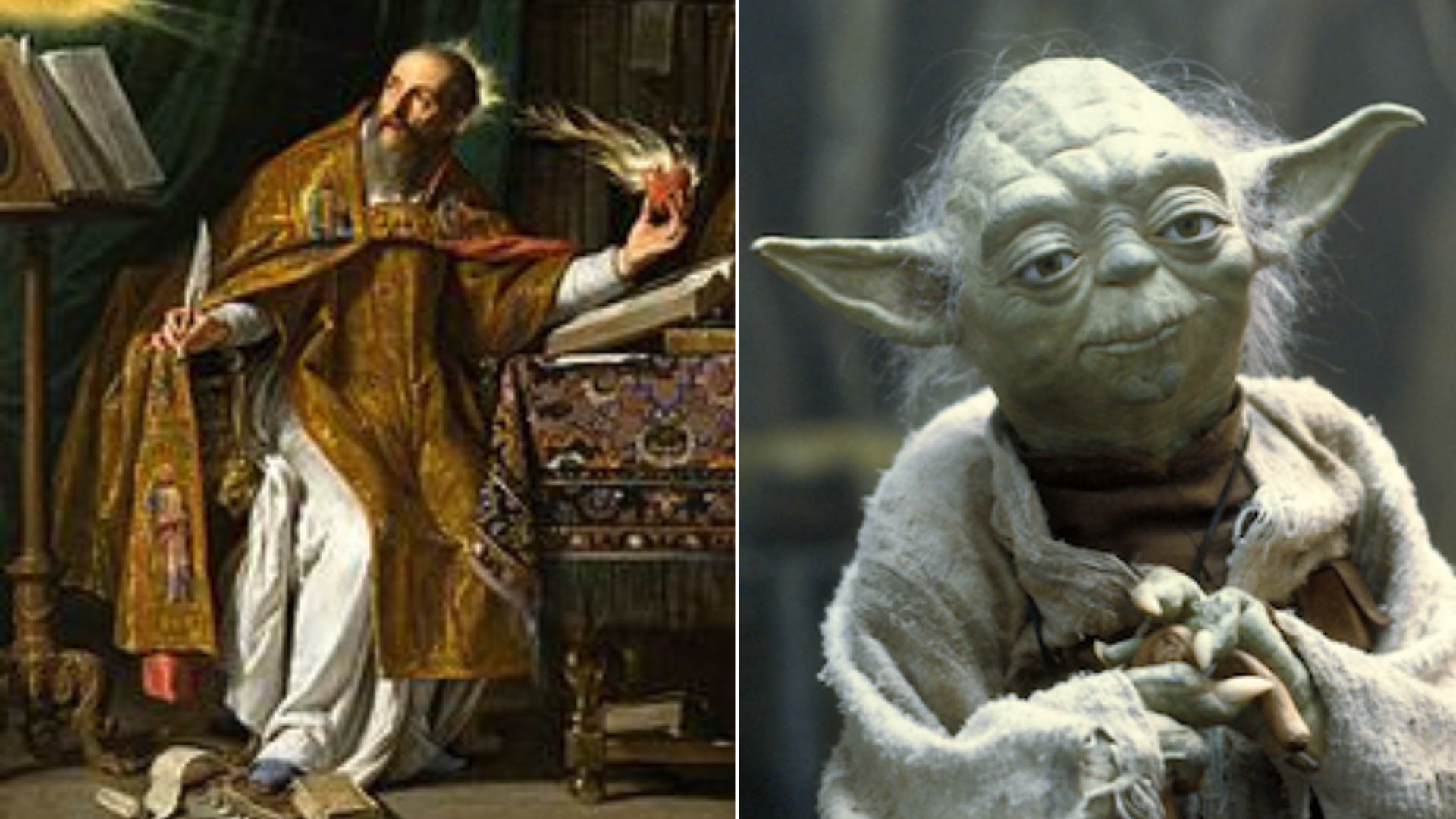St. Augustine & Master Yoda. Images courtesy Wikimedia Commons.
In what is inarguably the greatest film of the Star Wars franchise (Episode V: The Empire Strikes Back), Luke travels to a backwater system to train with the aged Jedi Master, Yoda. In teaching Luke about the Force, he describes it thus:
[M]y ally is the Force, and a powerful ally it is. Life creates it, makes it grow. Its energy surrounds us, binds us. Luminous beings are we, not this crude matter.
This is one of Yoda’s more famous statements, which is why the following lines from the great theologian North African theologian Augustine recently caught my attention. In his Confessions, a beautiful prayer to God that is also the first autobiography in Western literature, St. Augustine wrote the following when describing how he and his friend renounced their careers in rhetoric to follow Christ more fully:
With the arrows of your charity you had pierced our hearts, and we bore your words within us like a sword penetrating us to the core. The examples of your servants, whom you had changed from murky to luminous beings, from dead to living men, were crowding in upon our thoughts, where they burned and consumed the heavy torpor that might have pulled us down again. So powerfully did they ignite us that every breath of guileful opposition blew our flame into fiercer heat, rather than extinguishing us.
(Confessions Book IX, 2.3, New City Press Second Edition pp. 210-211)

Both quotations offer a kind of dualism. For Yoda, it is something like a matter/spirit dualism, which Christians know all too well from fights with gnosticism throughout the generations. Augustine himself had been delivered from Manichaeism, a dualistic pseudo-Christian system that pitted a supposed good deity, the Christ, from the New Testament, against a corrupt and evil deity from the Old Testament.
But in this section of the Confessions, Augustine’s dualism is about the human telos, our end, goal, or purpose. Augustine and his compatriots are inspired the stories of the saints who had been transformed by God’s grace to be fully that which God had made them to be. John Wesley would describe this as the restoration of the Divine Image, the process of sanctification by which we become more like God. Or, in Augustine’s language, people are changed from “murky” to “luminous” beings.
We are indeed “luminous beings.” Original sin mars the divine image, in wreaks havoc in our lives and in our world, and yet humans remain creatures capable – always by God’s goodness – of loving God and neighbor. By the work of the Spirit, we can become by grace what Christ is by nature. This is a high calling, a noble pursuit, and a glorious gift.

May we seek God’s grace to become the luminous beings we were always intended to be.
P.S. If you enjoy the confluence of pop culture and theology, I highly suggest you check out Theology, Religion, & Pop Culture series from Lexington/Fortress Academic. I have a chapter on ecclesiology and the Night’s Watch in Theology and Game of Thrones, and I will have a piece on sabbath and the Knightfall saga in the upcoming Theology & Batman volume in the same series.
